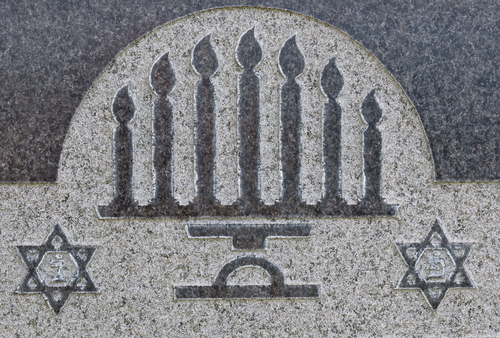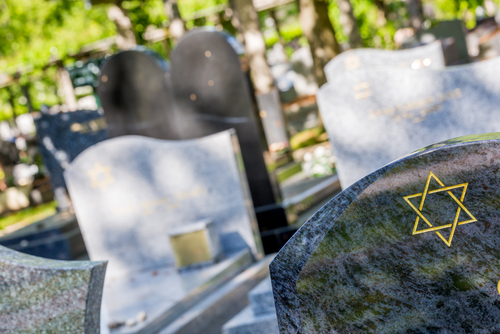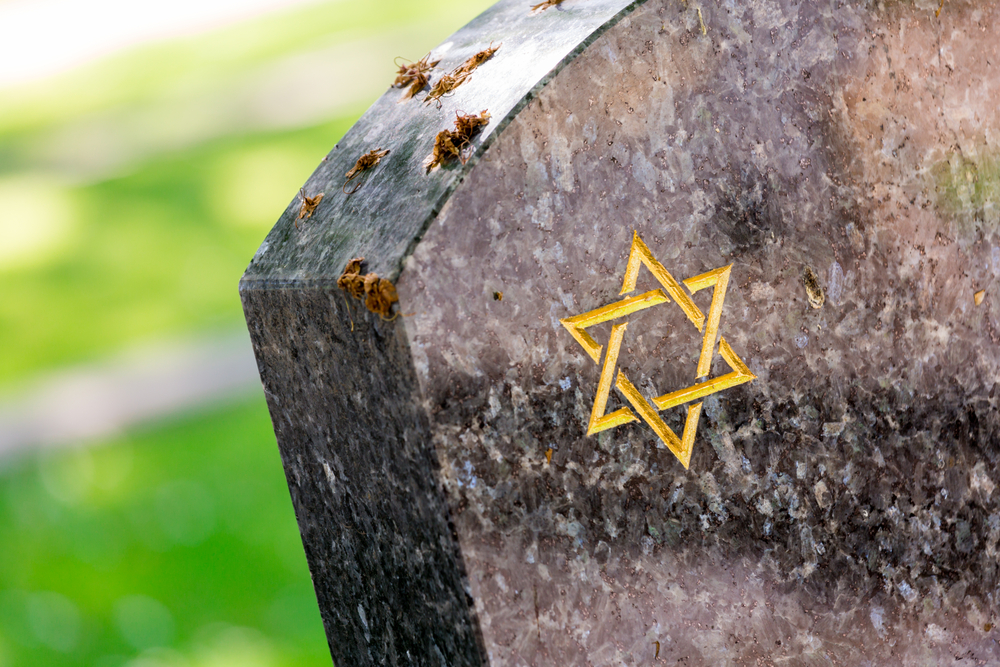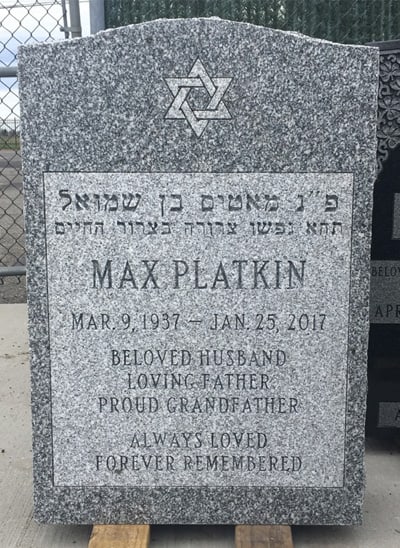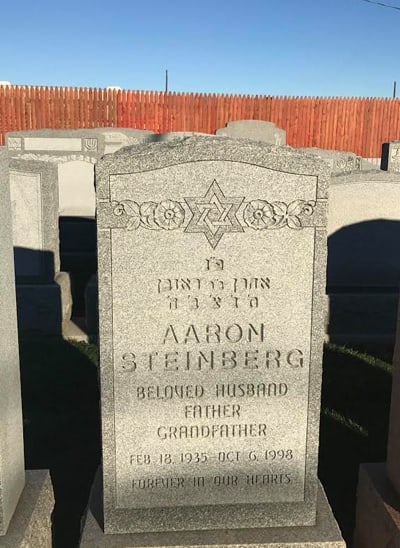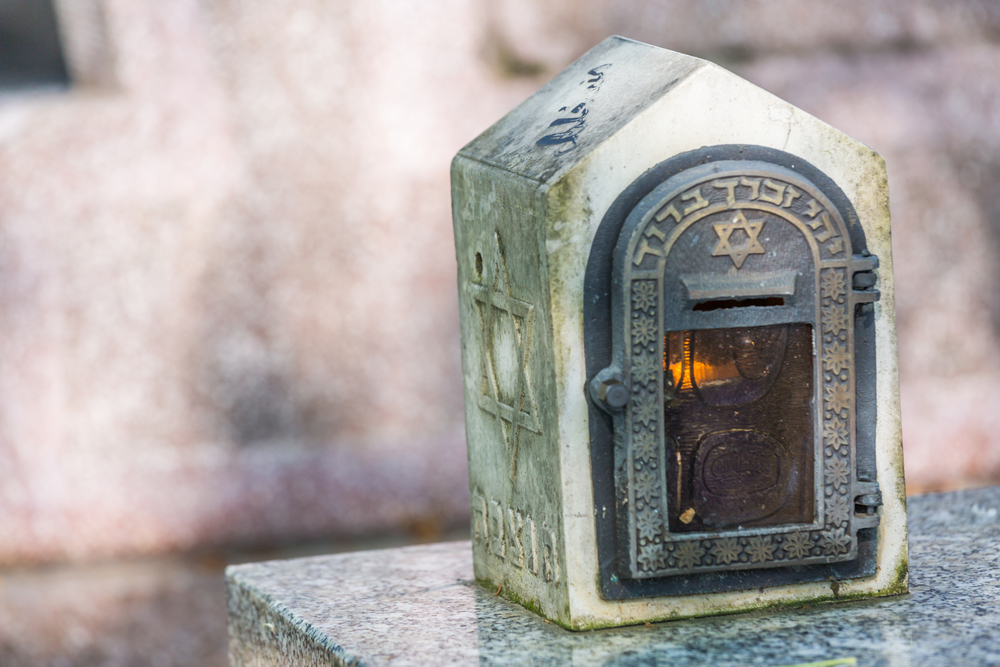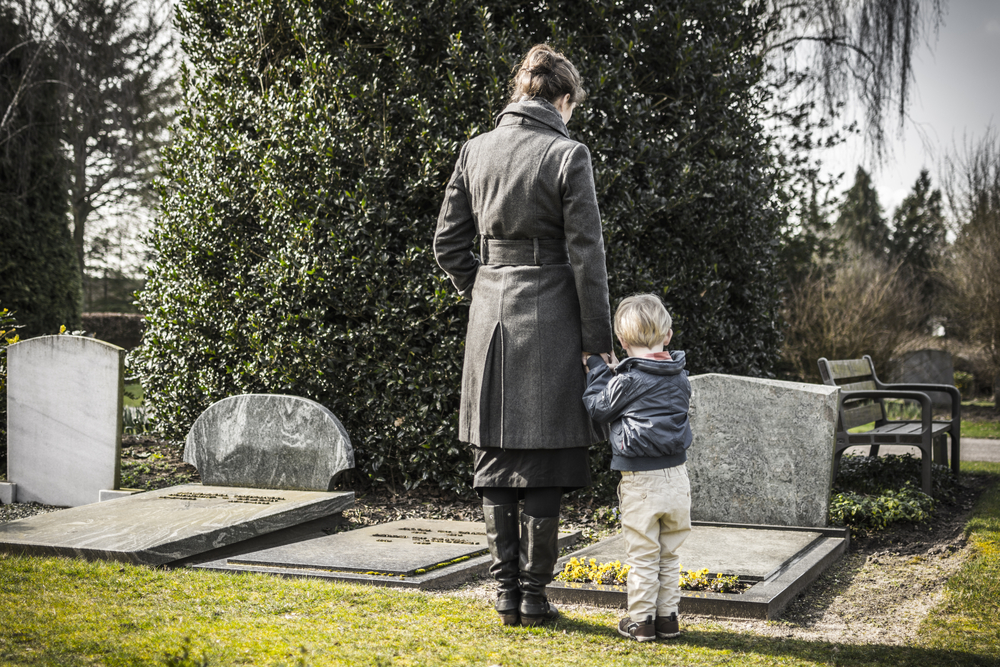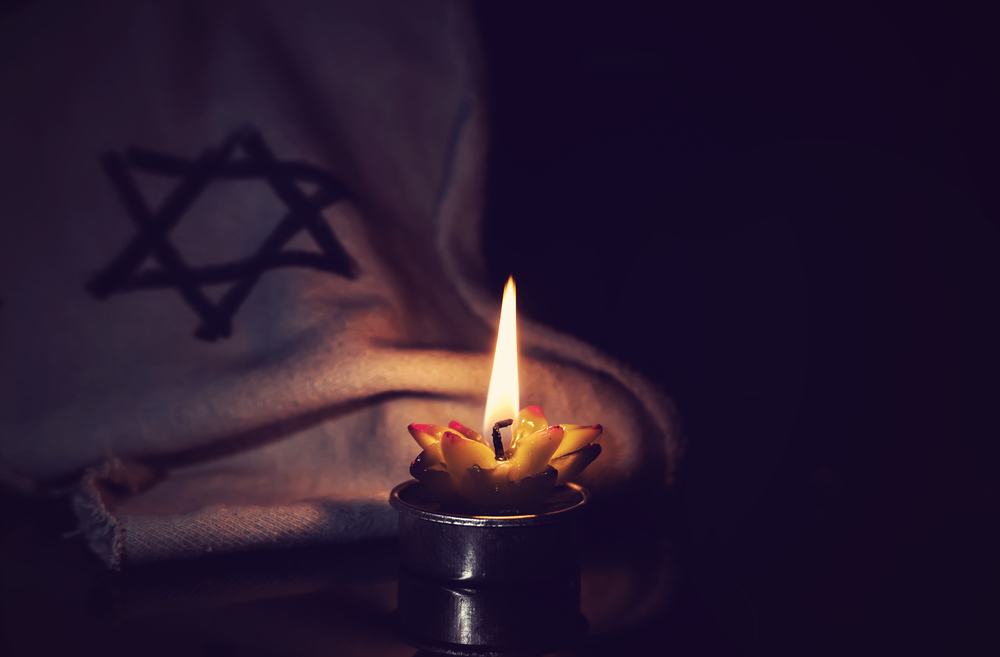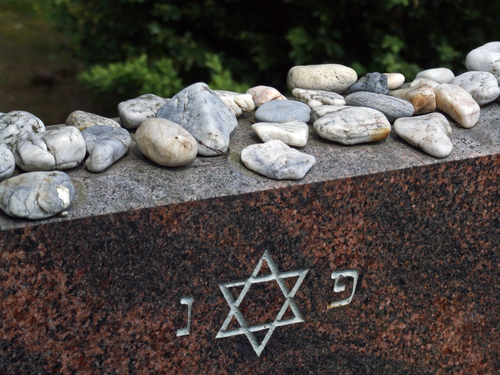
Some time has passed, your mind has had a bit of time to settle. You’re still grieving though. At Fox Monuments, we understand there is no time frame for grief. That’s why it’s important to us to help Long Islanders navigate every step of this process.
During the funeral and burial process, traditions are of the utmost importance in the Jewish faith. In this post, we’ll delve into the details of the Unveiling Ceremony, and the significance it holds for Jewish people.
When Does the Unveiling Ceremony Take Place?
The unveiling ceremony after the passing of a loved one traditionally occurs within the first year. Dictated by Jewish funeral traditions, the unveiling ceremony generally takes place at the end of the grieving process. According to Halacha (Jewish Law), the unveiling of the stone can occur between the end of Shiva and the Yahrzeit (year remembrance date). This time signifies final acceptance and being at peace with the passing of a loved one.
In modern times, it is also common for the unveiling ceremony to take place 30 days after the burial. With this timing, the unveiling ceremony takes place at the conclusion of the Shloshim, rather than the Yahrzeit. Work and/or school become priorities again after Shloshim. They are encouraged not to engage in leisurely activities.
The times are a little more flexible depending on your level of observation. Because the unveiling ceremony is more of a tradition, and less of a religious requirement, there is more flexibility than with other customs.
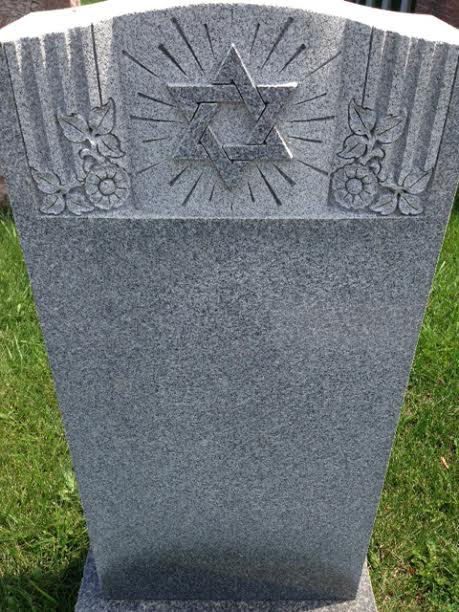
Who is Invited to the Unveiling Ceremony?
The very nature of the ceremonious unveiling is intimate. However, as this is an ode to your loved one, you are free to choose the guests. Many times, the immediate, some extended family, and close friends are present. Comparatively to a funeral or Shiva call, there is no public announcement for an unveiling. A Rabbi can officiate the ceremony, but this is not necessary. Again, it all depends on the family’s level of observation.
How It Works
The beauty of Judaism is that there is room for interpretation. You can find a Rabbi and a congregation that celebrates and observes Judaism the way that suits you. Therefore, the order and actual events of the unveiling are up to you. Traditionally speaking though, the ceremony is usually short in time.
The immediate family of the deceased individual should arrive at the Jewish monument before anyone else. This allows them to greet others and thank them for attending. Before others arrive, though, it’s important for the immediate family to ensure that the cloth is adequately covering the gravestone.
Everyone gathers around the covered monument. The Rabbi in attendance will deliver selected readings from the book of Psalms, and lead those gathered in reciting prayers. Depending on the circumstances, the Rabbi or a family member will give a eulogy, commemorating the deceased. After the eulogy, those gathered will recite the traditional Memorial Prayer and the Kaddish. A Minyan (presence of 10 Jewish adults) is required to recite the Kaddish. This signifies the power of unity. If a Minyan is not present, the Kaddish will be skipped. Finally, the family will remove the monument covering. Additionally, if a Rabbi is not present, a member of the family can lead the ceremony.
What is the Significance of the Unveiling Ceremony?
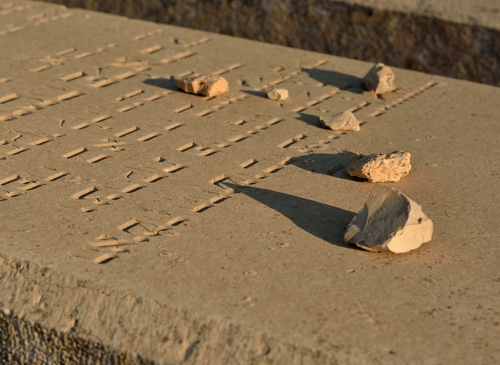
The significance of the unveiling ceremony stems from a time when elaborate gravestones were uncommon. Before it became customary for families to assign this work to a professional, the families often built these headstones independently. These memorials ranged from stones with engraved names to more elaborate hand-decorated headstones. After working so hard to create a fitting monument, the unveiling ceremony displayed this commemorative stone to the world.
In the present day, Jewish families continue to carry out unveiling ceremonies in the same fashion.
Whether timely or unexpected, death can shake us all to our very core. The dedication of the stone that takes place at the unveiling serves a hefty purpose. By unveiling the head or footstone, we are marking and acknowledging the final resting place of our loved ones. When the grief begins to subside or we find ourselves overwhelmed, the final resting place can bring us peace.
Fox Monuments Can Help
At Fox Monuments, we understand the significance of funeral traditions. Our staff is committed to designing breathtaking monuments. These memorials will commemorate deceased individuals for a lifetime. Contact us for more information about how we can create a stunning monument for your loved one.

